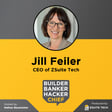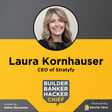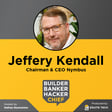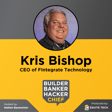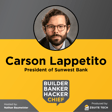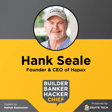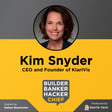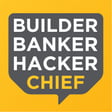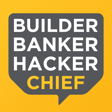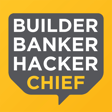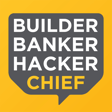
Eric Sprink – Jumping between time scales, collaborating with your board of directors, and firing yourself | Episode 7
Welcome to episode seven of Builder, Banker, Hacker, Chief! Joining me today is Eric Sprink, CEO of Coastal Community Bank.
On this show, I’m unpacking the stories, decisions, and influences that make people successful leaders. Eric belongs to the class of CEOs who start their journeys at the bottom of the corporate ladder and work their way up to the very top. And he accomplished this by thinking divergently, not by embracing the mindset of a stereotypical banker.
My name is Nathan Baumeister; I am the Co-founder and CEO of ZSuite Tech and the host of this podcast.
Often creative and unconventional thinkers are cast as loners. Isolated geniuses putting a dent in the universe by executing a futuristic vision that nobody else fully understands. Eric Sprink has demonstrated that creativity and vision can and should be a team effort. He’s currently leading one of the foremost institutions in the banking-as-a-service space, including collaborating with Greenwood, a fintech built for underserved communities.
Coastal Community Bank’s notoriety and influence is an inevitable consequence of a leadership team that skates to where the puck is going to be in 15-20 or even 30 years, not where the puck is today.
Eric is a sought-after speaker and investor, thanks to his focus on relentless improvement at the organizational level and the personal level.
If you’re curious about the future of banking, look no further than the mind of Eric Sprink.
Resources:
Eric’s book recommendations:
Only the Paranoid Survive: How to Exploit the Crisis Points That Challenge Every Company
Let Us Put Our Money Together: The Founding of America's First Black Banks (Request a free copy)
Connect:
